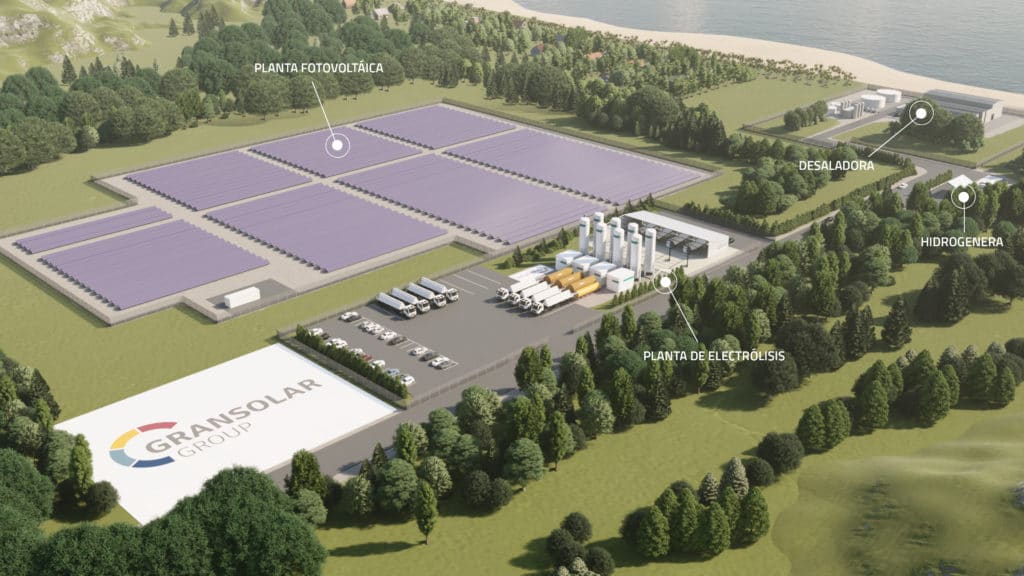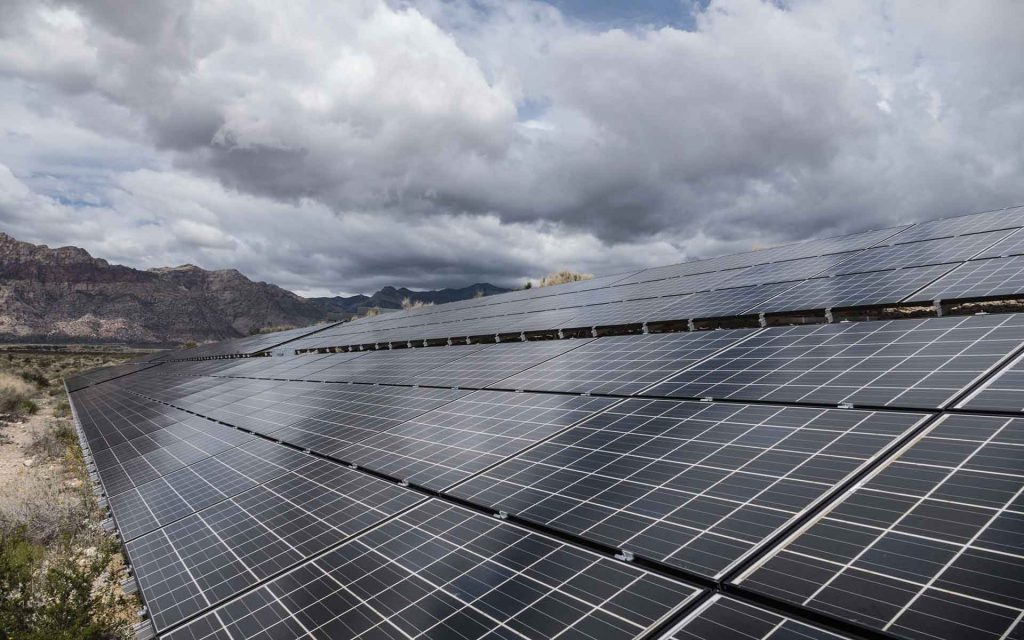From pv magazine Spain
A company spokesperson told pv magazine that the plant will produce hydrogen from seawater and will be powered by a 30 MW solar plant and a 20 MWh storage system with an autonomy of 4 hours.
The facility will be based on double-reverse osmosis treatment with energy recovery followed by electrolysis of deionised water through proton exchange membrane (PEM). Furthermore, secondary electrolysis of concentrated brine will be implemented by cell membrane electrolysis.
The main electrolyser at the facility will have an installed capacity of 20 MW and an estimated production of 1,000 tons per year. The produced fuel will be then stored in trucks for pressurised gas at 400 bar pressure.
Hydrogen will be used as fuel for public transport at the port and urban cleaning vehicles in the city of Almería. It will also be utilised to feed the port’s unloading machinery, the national and international transport of goods, and part of the energy demand of local manufacturing industries.
The project has a required investment of €80.5 million (AU$126 million) and is scheduled to be built by the end of 2024. Gransolar confirms that it has the interest and commitment of the Almería City Council, as well as multiple companies from different professional sectors, without providing further details.
Almería will not be the only Andalusian port with plans to produce hydrogen. The Port of Malaga is also expected to host green hydrogen production through a project that also contemplates the use of artificial intelligence.
This content is protected by copyright and may not be reused. If you want to cooperate with us and would like to reuse some of our content, please contact: editors@pv-magazine.com.









By submitting this form you agree to pv magazine using your data for the purposes of publishing your comment.
Your personal data will only be disclosed or otherwise transmitted to third parties for the purposes of spam filtering or if this is necessary for technical maintenance of the website. Any other transfer to third parties will not take place unless this is justified on the basis of applicable data protection regulations or if pv magazine is legally obliged to do so.
You may revoke this consent at any time with effect for the future, in which case your personal data will be deleted immediately. Otherwise, your data will be deleted if pv magazine has processed your request or the purpose of data storage is fulfilled.
Further information on data privacy can be found in our Data Protection Policy.